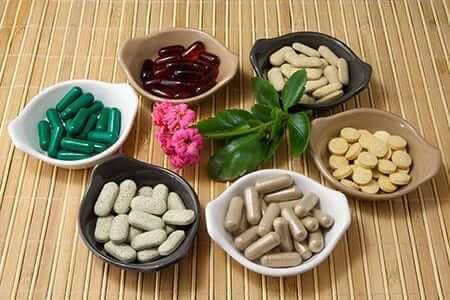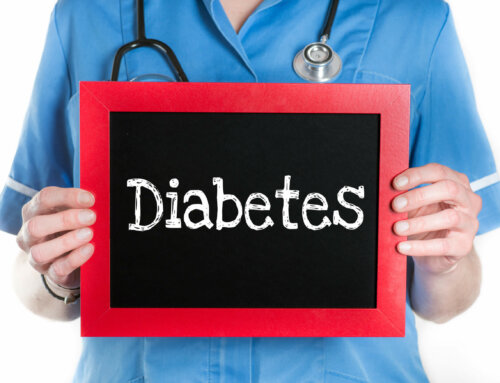According to the CDC, over 50% of American adults continue to take vitamins and supplements, even though multiple studies suggest they are often “unnecessary or harmful”. A study by The Atlantic, published in 2013, showed that supplements “may shorten your life span”. Women tend to purchase and take supplements more than men. The studies keep changing, and some of the results are skewed due to size and study methods. At this point in time, it is still prudent to get most of your vitamins from food sources.
If you are not getting these vitamins from food, then consider taking them as supplements. People with certain health conditions, including (but not limited to) kidney disease, may need supplementation.
Those who are vegan, eat highly processed low fiber diets, often eat fast foods stripped of nutrients and fiber, and those who are on low calorie eating plans may also require extra vitamins and supplements. People who constantly eat the same things (which lack variety and multiple nutrients) may benefit as well. Extra vitamins and minerals may fill the holes in these eating plans.
Always check with your own health care provider to see which direction you should take.
My patients frequently ask questions about vitamins and supplements and I thought it would be worthwhile to review. I am not suggesting or advocating that you use anything other than foods to obtain many of these nutrients. You and your professional provider should decide.
Below are specific vitamins and supplements recommendations:
Calcium
a mineral necessary for life. It helps build bones, helps our blood clot and aids in muscle contraction. The need for calcium increases as we age. Whether we have diabetes or not, as we age, we have a reduction in bone mass, which leads to thinning of the bones or osteoporosis. We lose calcium daily thru perspiration, urine, feces, skin and hair. Osteoporosis mainly affects women, but men are at risk as they age.
- 99% of calcium in our body is stored in our bones and teeth.
- Small boned, thin, short, smokers, taking steroids, inactive or having a family history increases your risk of osteoporosis.
- Drinking too much alcohol and eating too much salt may increase your osteoporosis risk as well.
- Bone density test are performed on women at the onset of menopause and for men at age 70. This non-invasive test can reveal the condition of osteopenia or osteoporosis. The test is every 2-3 years after the initial screening.
- We do not produce our own calcium. If you do not get calcium from foods or supplements, the body will steal or leach it from your bones.
Calcium recommendations for patients:
- Calcium is recommended between 1000-1500mg a day, depending on your age.
- Try to eat foods regularly that contain calcium, such as low- fat dairy products including milk, cheese and yogurt. Part skim Ricotta cheese offers high amounts of calcium. According to The Osteoporosis Foundation, “adding one tablespoon of nonfat powdered milk to foods or drinks will add 50 mg of calcium.” You can add a couple of tablespoons a day.
- Find foods enriched or fortified with calcium like soy milk, breads and cereals. Dark leafy greens-kale, broccoli rabe and collard greens have calcium and vitamin K which may help build bone density.
- If you are vegan or do not eat or tolerate these calcium foods (lactose intolerance). Use supplements to make up for food calcium short fall. Find calcium supplements in tablets or capsules. Remember not to take calcium when drinking coffee or diet cola, since this may interfere with absorption. Divide your calcium doses into two times a day. Only 600mg is absorbed at once.
- Calcium supplements may cause stomach gas or constipation. Add them gradually. Drinking more water will help this condition and alleviate the problem.
Vitamin D
found in sunlight, food and supplements. It helps protect bones along with calcium. The research on vitamin D is not consistent. Some physicians recommend vitamin D for every malady, while others think vitamin D is being over-prescribed. Aging makes it more difficult for us to convert sunlight into vitamin D. Due to winter seasons with lack of sunlight, as well as sunscreen use, we may not get enough vitamin D.
- Guidelines suggest combining calcium and vitamin D-3 supplements (which are abundant on the OTC market). Most recommend taking between 400-1000 IU a day. A simple blood test will tell you your specific value. An adequate vitamin D level is between 30-70.
- Vitamin D can reach unsafe levels since it is fat soluble (stored in your fat), so check with your physician first.
- Foods which are high in vitamin D are wild salmon, light tuna in oil, flounder, eggs, mushrooms, fortified milk, cereal, and ricotta cheese.
- Vitamin D may also prevent muscle mass decline in men as they age.
- Stick to vitamin D3 which comes in liquid or capsules, take with or without food.
Iron
is a worthwhile mineral for women prior to menopause, during pregnancy, for those on chemotherapy, with celiac disease, Crohn’s disease, ulcerative colitis, or anyone suffering from gastric bleeding or kidney disease, when anemia is present. Always check with your health care provider, since too much iron can be dangerous.
- Mild/ slow release supplement which will help protect your stomach and reduce constipation.
- Choose foods high in iron such as: chicken, turkey, eggs, meat, dried fruit, nuts, beans, peas, lentils and tofu. Try to combine these iron rich foods with vitamin C, which will increase absorption. Check with a dietitian when you have severe kidney disease, since you may need to be on a restricted protein diet.
- May cause an upset stomach or constipation.
- Iron supplements can interact with many other medications such as antacids, Proton pump inhibitors (PPIs) or calcium supplements.
Vitamin B’s including B6/B12
are difficult to process as we age and usually require supplementation. There are a family of 8 distinct vitamin B’s. Included is B1-thiamine, which helps our nervous system. B2-riboflavin, helps our vision and skin. B3 for niacin. B5 for pantothenic acid. B6-pyridoxine, helps brain processes and metabolizes carbohydrates and proteins. B7 for biotin. B9 for folate and B12-cobalamin, improves mental acuity, forms red blood cells and converts fatty and amino acids into energy.
You may consider a B vitamin supplement if you do not eat foods high in vitamin B, since B vitamins are not fat soluble and do not stay in your tissues.
- Vitamin B12 helps with red blood cell and nerve cell formation. B6 is suggested in order to produce red blood cells. A highly absorbent route is in a sublingual tablet, spray, or liquid – since pills may not be adequately broken down.
- Foods that contain B vitamins are eggs, lentils, sunflower seeds, peanuts, yogurt, white meat chicken, milk and cereals fortified with vitamin B. Greens are high in B vitamins, but they should be steamed with a bit of olive oil and lemon for best absorption.
- Women as they age are especially low in vitamin B1 or thiamine.
- Many people receive vitamin B12 shots for added energy. Recent research suggests vitamin B may help with weight loss but check with your physician for a final recommendation.
Omega 3 Fatty Acids
our bodies do not produce Omega 3’s, so they must come from food or supplements. Lack of Omega 3’s can cause dry skin and poor sleep. This is still one of the most popular and often suggested supplements. May decrease systemic inflammation, which is associated with many diseases including diabetes, heart disease, arthritis, Lupus and other auto immune disorders.
- Take these supplements with food and keet cold to decrease GI distress. Take with meals that contain fat for better absorption.
- Omega 3’s help with contraction and relaxation of artery walls. They help regulate with clotting of your blood.
- Foods that contain Omega 3 fatty acids are salmon, mackerel, sardines, tuna and anchovies. You should try to eat fatty fish meals 2-3 times a week.
- Non-animal food sources are flax seeds, chia seeds, walnuts, tofu, and roasted soybeans. Maintaining your Omega 3 and Omega 6 fatty acids in ratio is important to lower inflammation. Most people over eat Omega 6’s. The ratio should usually 1 to 2.
CoQ10
naturally produced by the body. As we age we tend to produce less. Although the research still shows mixed evidence, CoQ10 supplements may be especially worthwhile for those people taking a statin medication. It may slow Alzheimer’s and can help treat certain heart conditions. CoQ10 is an antioxidant that may compensate for immune deficiencies and is needed for metabolism.
- There is no real established dosage, but the usual recommended dosage is 100mg-200mg and should be taken along with your statin medicine in the evening.
- Food sources of CoQ10 are cold water fish-salmon, mackerel and sardines. Other food sources are meat and poultry, as well as soybean or canola oil, pistachio nuts, hazelnuts, and peanuts.
- It may decrease blood sugars.
- CoQ10 can interfere with thyroid medications and blood thinners.
Vitamin C
Vitamin C is an essential vitamin that the body does not produce naturally. Generally, vitamin C is safe. It is not fat soluble, and can’t be stored in large amounts in the body. It’s an antioxidant which boosts your immunity and strengthens your body’s natural defense, promotes eye health and helps reduce cardiovascular disease. It may relax blood vessels, improve iron absorption and protect your memory.
- If using a supplement, try a non-acidic buffered form to protect the stomach from GI irritation.
- Foods high in vitamin C are broccoli, red cabbage, red and green peppers, kiwi and raspberries, along with all citrus fruits.
- Daily dosages from 500-2000mg recommended.
- Too much vitamin C can cause heartburn, nausea, headaches and insomnia.
If you do decide with the help of your physician to take dietary supplements follow these steps:
- Keep them in the original container in a cool, dry place (avoid bathrooms and kitchens)
- Check dates for expiration
- Purchase those with the USP seal on the packaging
You may be able to get your daily recommendations of vitamins and supplements from a varied healthy diet – without the need of extra expense. Each person is different with various health issues. Remember, this is just a short list of available products, so check into the ones that you find interesting and then decide what will work best for you!







It’s now been a year and a half since oral squamous cell cancer was found in my kitty’s mouth. She’s nearly 17 years old now! I’m still treating her myself as conventional medicine had no more to offer. I’m currently using IP-6 plus Inositol and Artemisinin with a few other supplements. If it weren’t for these so called “unproven” treatments, I just don’t believe that I’d still have my kitty. We don’t seem to recognize that other cultures have used alternative methods of treatment for a long time and they have shown effectiveness. I can’t help but wonder “why” as by sharing knowledge and learning from each other, we could improve the quality of life for everyone.
I’ve been taking supplements for years and I feel that they have been of benefit to both me and my pets. Consumer Labs can be helpful in finding reliable supplement suppliers. I’m a middle aged vegetarian and a long term T2 diabetic and so far, I’ve not had to take prescription meds of any kind. Additionally, I started giving my now 16 year old kitty supplements for her oral squamous cell carcinoma when the prescription meds from the vet no longer seemed to be effective. At best, her life expectancy using conventional medicine was less than a year. Her last round of prescription meds was in April 2014 and when they seemed to do little good, I started her on supplements as a holistic cancer treatment. It’s now been one year this month, and I’ve still got my kitty! She has outlived the odds! I’ve been very impressed with how much better holistic/natural treatment has maintained her. Although I’ve not cured her, I’ve better stabilized her and that has increased her quality of life. I also use natural treatment for my hyperthyroid kitty, my arthritic dog and my spay incontinent dog. Say what you want about supplements, but I’m a believer! I’ve studied long and hard, both on my own and in the college classroom and I’ve learned that learning never ends! .
Thanks for the information. I am a pet person as well as it is good to hear you have helped them live long and healthy lives. Best of luck to you!
Nurse Robbie
I am disappointed there is no mention of Alpha lipoic acid. (see https://www.adwdiabetes.com/articles/vitamins-supplements-diabetics ) . To quote from that article, “Antioxidants may provide significant benefits to diabetic patients. Antioxidant vitamins, such as vitamin A (beta carotene), C, and E fight free radicals. (Free radicals are unstable molecules that cause damage by stealing electrons from a healthy cell’s molecules.) Recent studies have shown that antioxidants help prevent neuropathy and retinopathy. Alpha lipoic acid is an antioxidant that aids in glucose uptake.[3] It helps vitamins A and C work better, detoxifies the body, and guards against degeneration in the eye.
Hi Frank,
Thanks for pointing that out. There are so many wonderful
vitamins and supplements available and sometimes I can’t write
about all of them at the same time. As you mentioned , we have covered ALA in previous articles and I do agree that it is one of the best ones out there. Keep learning and sharing with others!
Nurse Robbie
What is a good natural cholesterol reducer for women?
Thanks for your question about lowering cholesterol naturally. I always recommend you talk to your MD about starting any new supplements since they may interact with your regular medications. There are no specific guidelines that apply to women and these things should work well for both men and women. The best way to reduce LDL cholesterol (the portion that causes plaque and a problem) naturally is to stop smoking, start an exercise program and lose weight. If you are interested in foods that may help reduce LDL cholesterol- they include: salmon and other fatty fish like anchovies and mackerel- which contain Omega 3 fatty acids, monounsaturated or MUFA’s including olive oil in moderation (due to calories) fresh garlic or garlic extracts-which can interfere with blood thinners as well as plant sterols found in Benecol or Promise margarine spread. Eating long cooking oatmeal with no added flavor helps to reduce cholesterol. A study published in Clinical Nutrition states “eating 1.5 ounces of walnuts 6 days a week for one month lowered LDL by 9.3%” You must watch portion size since nuts are dense and fattening. You can try unsalted almonds or cashews as well. Drinking red wine in moderation (if allowed by your physician) is known to decrease LDLs and raise HDLS- the healthy cholesterol. Adding Metamucil or any supplement that contains Psyllium can lower cholesterol. Again these methods will certainly help lower your numbers but will never give the same impact as a statin prescription medication. You and your health care provider must weigh the risks and benefits of all your options. Hope this helps and best of luck.
Nurse Robbie
What is a good natural cholesterol reducer for women?
This is a good article , but, I am getting weary of all the negative “studies” and “study of studies” scaring people from using supplements. Is our food really all that nutricious that we can actually get most of our vitamins from them? So much of it is GMO and full of sugar, refined flour, questionable soy, corn, and wheat, not to mention neuro-toxin artificial sweeteners. Some products that are “vitamin fortified” use the wrong cheaper form that the body can not absorb as well…for instance Vitamin D should be D3 not D2. Supplements should be purchased from a reputable source and stored as mentioned in the article. Also, check with your doctor for any adverse reactions to drugs you are taking. For instance, grapefruit in any form can cause an increase concentration of drug in the system that can have detrimental effect.
The PROBLEM with “studies” like this is that MOST “supplements” are made with MOTOR OIL-and yes, you will get ZERO BENEFIT from them.
Our food supply has been genetically modified, and we get almost nothing, vitamin wise from the actual food we eat (unless you grow it yourself).
EVERYONE NEEDS SUPPLEMENTS–only problem is buying REAL FOOD BASED vitamins and supplements–words such as “Natural” mean NOTHING–ROCKS are “natural”, so are sea shells (what most Calcium supplements are made from)…Any vitamin ending in the following is synthetic: acetate, hydrochloride, mononitrate, palmitate or succinate. EDUCATE YOURSELF !!